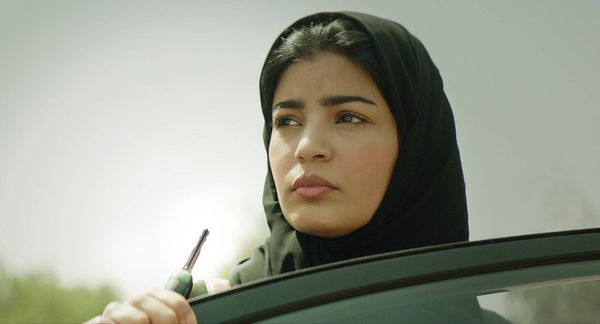Eye For Film >> Movies >> The Perfect Candidate (2019) Film Review
The Perfect Candidate
Reviewed by: Amber Wilkinson

Familiar themes of feminism and equality are set within what will be, for many, a culturally unfamiliar framework in the latest film from Wadjda director Haifaa Al-Mansour, who returns to her Saudi Arabia homeland after English language biopic Mary Shelley and dramedy Nappily Ever After. The story - of a woman coming up against the establishment - is given some fresh vigour by the setting, with Al-Mansour immersing us in Saudi cultural life, from Ramadan to Eid to weddings.
Maryam (Mila Al Zahrani) is a doctor working in a regional hospital, treating patients from behind her niqab - and frequently facing prejudice from them. "Keep her away from me," screams one recalcitrant old man, while his grandson Omar (Tareq Al Khaldi) tries to placate him. Encountering sexism is still commonplace anywhere in the world, but in Saudia Arabia it is actively built into the country's customs. The Kingdom heavily touted the relaxation of "male guardianship" laws last year - which previously meant all women needed a man's permission, usually a father or a husband, if they wanted to travel, marry or obtain family documents - but Al-Mansour shows how permission to do something does not equate to acceptance when you do.

When a documentation mix up, complicated by the fact her musician father - who has also benefited from relaxed laws around live performance - is on the road, she approaches a family friend for help, only for him to think she wants to run for office in the local municipal council elections. It's the sort of plotting that could have been plucked from a soap opera and, in keeping with this, she, of course, decides to run in a bid to replace the muddy track to the hospital with a modern road.
Along for the ride are her wedding photographer sister Selma (Dhay) and younger sibling Sara (Nora Al Awadh), who is particularly aghast at the idea of Maryam bringing the wrong sort of attention to the household. Al-Mansour keeps things light, exploring ideas of equality that have been round the block more than a few times, as Maryam attempts to win over the local populace via an abaya fashion show and a video presentation to the men of the district. As Maryam finds her voice and the relationship between her and Selma is allowed to come to the fore, the film generates a feel-good vibe even if beneath the pleasant froth lies a rather predictable polemic against the patriarchy.
Reviewed on: 27 Mar 2020

















